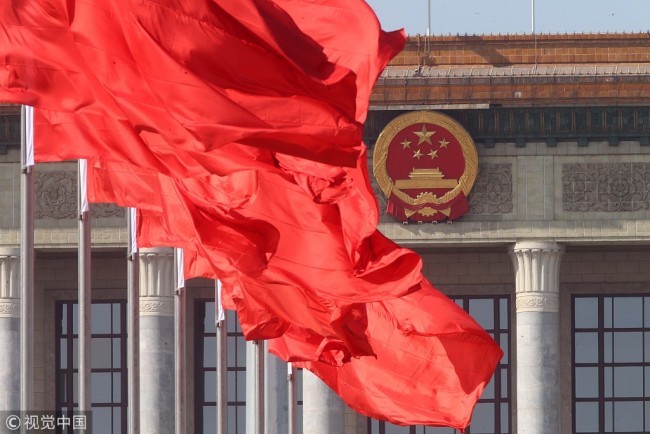Xiaokang to usher in Party's centenary year


July 1 marks the 99th anniversary of the founding of the Communist Party of China, and the Party has vowed to realize the goal of building a moderately prosperous society in all respects, or xiaokang, by the end of this year. The CPC leadership has also pledged to build on the foundation of a moderately prosperous society in all respects such that "after 15 years of hard work" the country will basically realize "socialist modernization" by 2035.
The country has seen political parties, ideological groups and think tanks draft various blueprints for achieving China's development goals. And achieving the goal of xiaokang by the end of this year, as proposed by the CPC leadership, is the only way to continuously advance the country's overall development and modernization plan.
Apart from the support of domestic and international conditions, the CPC's rational and practical design and its superior State governance capability have made the building of xiaokang by the end of this year possible.
In the late 1970s, Deng Xiaoping first mentioned the phrase "Chinese characteristics", which further adapts Marxism, after Mao Zedong Thought, to China's special conditions, which in turn gave birth to the concept of xiaokang.
After being made the Party's new historic mission at the 15th National Congress of the CPC in 1997, xiaokang has been a prime topic of discussion and deliberation at the subsequent four Party Congresses. In particular, the report of the 19th Party Congress in 2017 highlighted the goal to realize a moderately prosperous society in all respects and to ensure the victory of socialism with Chinese characteristics in new era, indicating the building of xiaokang had entered the final phase.
Thanks to the CPC's outstanding governance capability, years of the country's efforts, and the use of improved theories and practices to build xiaokang, China is now just months away from achieving that goal.
First, the Party's excellent State governance capability offered systemic guarantee to achieve the goal of building xiaokang. After long and arduous explorations, the CPC found socialism with Chinese characteristics to be best suited for the development of Chinese society. And with efficient coordination at all levels, the CPC continues to lead Chinese society toward further development.
Second, the CPC's national governance capability played the most important role in building xiaokang in more than 20 years since the 15th Party Congress in 1997. The problems that occurred at different stages of development prompted the CPC to improve its national governance capability and strengthen itself so it could handle more complex and tougher problems on way to realizing the goal of xiaokang.
Similarly, China would not have been able to largely contain the novel coronavirus outbreak at home without the CPC's excellent leadership and State governance capability.
And third, the CPC's State governance practices have set examples for grassroots-level institutions and organizations to follow. But more than a political task, the construction of a moderately prosperous society in all respects is focused on initiating social change from cities to villages.
Besides, governance practices in the countryside have helped improve national governance as a whole, as well as strengthened the rule of law and improved rural governance, as the 19th Party Congress report said.
Backed by the Party and the government, innovative experiments in rural areas across the country will keep improving State governance. And after achieving the goal of building xiaokang by the end of this year, the CPC leadership, in the Party's centenary year, will move firmly toward realizing the next goal-the rejuvenation of the Chinese nation.
The author is a professor in the Department of Literature and History, Party School of the CPC Central Committee.
The views don't necessarily represent those of China Daily.
































